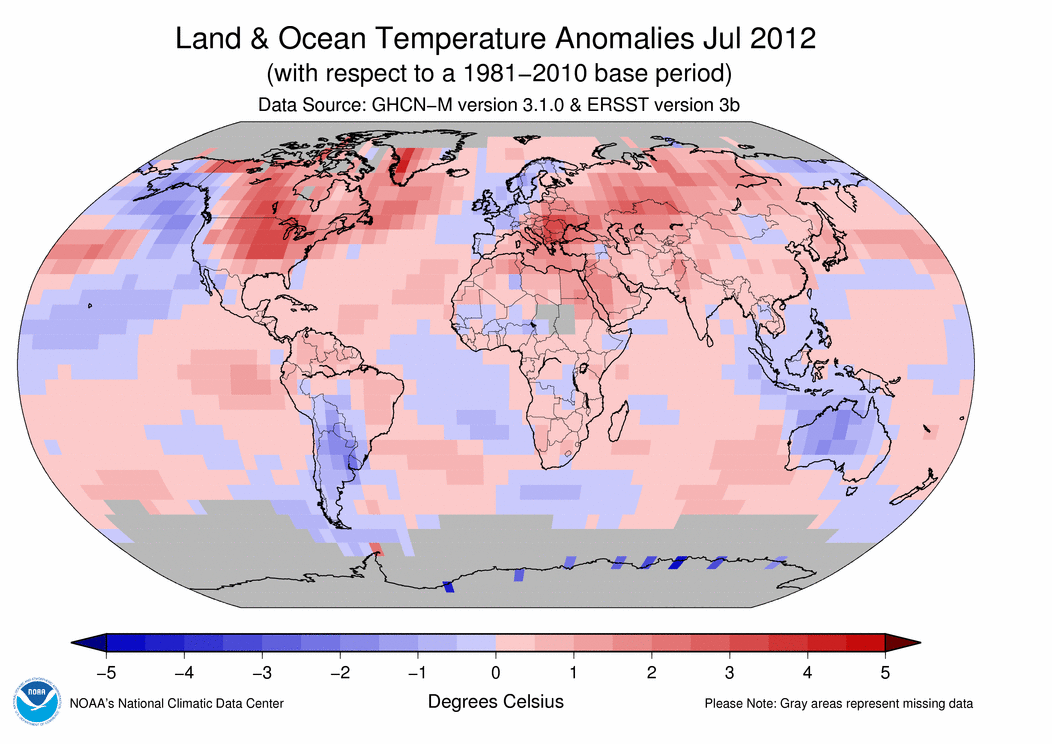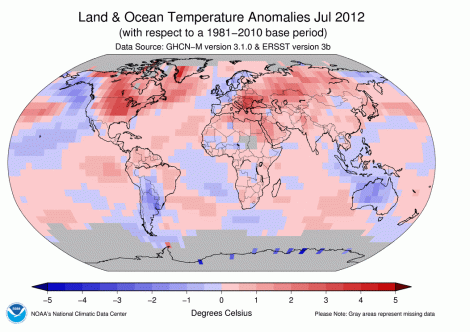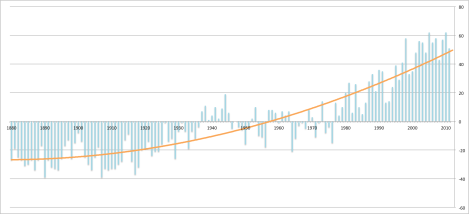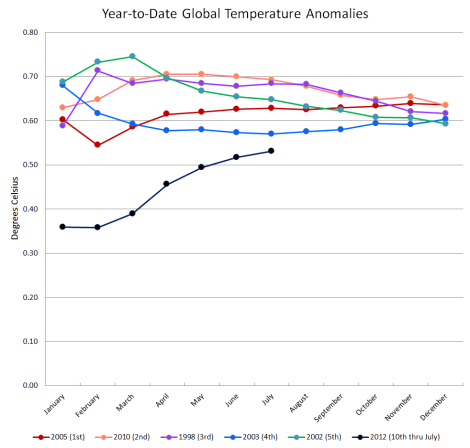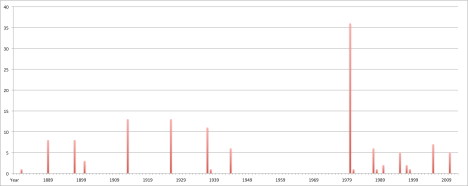Last week, the National Oceanic and Atmospheric Administration (NOAA) released its assessment of the state of the global climate. While July was the hottest month ever in the U.S., it was only the fourth-warmest July globally. Sen. James Inhofe is probably heading to the reflecting pool on the Mall for a little victory lap.
Climate change deniers should, however, be hesitant to celebrate. The most obvious reason is that “fourth-warmest” puts this July ahead of 128 other years since records started being kept in 1880. Additionally, the on-land temperature in North America was the hottest it has ever been (even while the United Kingdom saw its coolest July since 2000).
The trend, year-over-year, is clear. Using data from NASA, we looked at “mean temperature anomalies” by year, since 1880. Mean temperature anomalies are a measure of the midpoint of the global temperature’s deviation from a standard — in this case, the temperature baseline set from 1901-2000. (Read more about this measurement.) Here’s what each year’s mean anomaly looks like, with an orange line depicting the trend.
Not much new there — clear trend toward hotter temperatures. But 2012 is not likely to be the world’s hottest ever at this pace, greatly disappointing its parents. NOAA graphed the year’s progression compared to the hottest January-July stretches in history.
This made me wonder. Eight of the 10 hottest years in history have occurred during the last 10 years. How much more frequently are temperature records being set?
We took the NASA data and calculated how long each “hottest year” held that title. Here’s what the data looks like.
The longest-standing record fell in 1980. Prior to 1980, each record stood for an average of seven years. After, each hottest year has held that title for three and a half — and that excludes 2010, which matched the previous hottest year’s anomaly. We’re therefore overdue for our next hottest year ever. If you count 2010, the trend suggests it will come next year.
So, in summary: hot, getting hotter, getting hotter faster — but! Not always hottest. This has been your Gristmill weather report for the next century or so.

